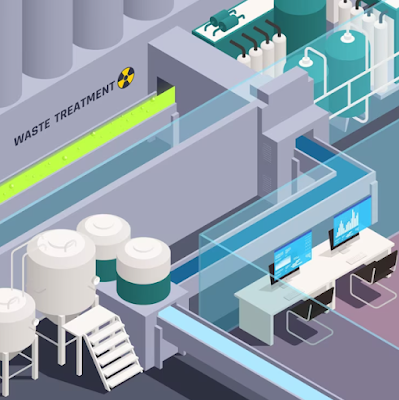Sewage Treatment: The Importance of Using the Right Chemicals
Wastewater treatment is an essential process that helps in the purification of water. It does this by removing contaminants and making them safe for reuse. The right chemicals play a vital role in this process. They help break down pollutants and pathogens, making it easier to remove them. Using the wrong chemicals can have serious consequences. It leads to health hazards and environmental damage. So, it is crucial to use the right chemicals when treating wastewater. This article discusses the importance of using the right chemicals in wastewater treatment. H2O Bazaar online has the perfect list of the sewage treatment plants in India. The best deals with the top brands are available now.
The Importance of Using the Right Chemicals
Using the right chemicals in wastewater treatment is essential. It ensures the effectiveness of the treatment process. The wrong chemicals can lead to poor treatment results. Also, inefficient use of resources and even environmental damage. Here are some reasons why using the right chemicals is so important:
Improved Efficiency: Right chemicals usage can help to improve the efficiency of the wastewater treatment process. It ensures that the chemicals are working and that the right amount is used. It can help to reduce costs and improve the whole quality of the treated water.
Environmental Protection: The wrong chemicals can hurt the environment. For example, using excessive amounts of disinfectants can release harmful by-products into the environment. It can be harmful to organisms living in the water.
Public Health Protection: Proper wastewater treatment is essential for protecting public health. The wrong chemicals or poor treatment can lead to the spread of waterborne diseases and other health risks.
Regulatory Compliance: Right chemicals usage in wastewater treatment is also important. It is for complying with regulatory requirements. Regulatory bodies often specify the type and amount of chemicals used in wastewater treatment. It protects the environment and public health.
Chemicals Used in Wastewater Treatment: Wastewater treatment involves different stages. Each stage requires specific chemicals. The primary treatment stage involves the use of physical methods. They are; screening, settling, and filtration to remove large particles and debris. Yet, the second stage, which is the biological treatment stage, involves the use of chemicals. Examples are coagulants, flocculants, and disinfectants to remove dissolved and suspended pollutants.
Coagulants and Flocculants: Coagulants are chemicals that destabilize and add small particles. It makes them easier to remove by settling and filtration. Examples of coagulants include aluminum sulfate, ferric chloride, and poly-aluminum chloride. Flocculants are used to agglomerate small particles into larger particles, making them easier to settle and remove. Examples of flocculants include polyacrylamide, polyethylene oxide, and guar gum. The use of coagulants and flocculants in wastewater treatment is crucial. They help in the removal of suspended solids, turbidity, and color.
Disinfectants: Disinfectants are another vital type of chemical used in wastewater treatment. The purpose is to kill harmful bacteria and viruses in the water, making them safe for discharge. Chlorine is the most used disinfectant in wastewater treatment. However, there are other options, such as ozone, chlorine dioxide, and ultraviolet light.
Oxidizers: Oxidizers are chemicals used to break down organic compounds in wastewater. They work by reacting with organic compounds. Further breaks them down into simpler, less harmful compounds. Examples of oxidizers used in wastewater treatment include chlorine, ozone, and hydrogen peroxide. Right oxidizer usage is important because different contaminants need different oxidizers for removal.
PH Adjusters: PH adjusters are used to balancing the acidity or alkalinity of the water. The most common pH adjuster used in wastewater treatment is lime.
The type and amount of chemicals used in wastewater treatment can vary. It depends on the specific type of wastewater treated and the treatment process used.
Conclusion
In conclusion, chemical treatment is a critical component of wastewater treatment. Using the right chemicals is essential to ensure the water is safe for discharge. This treatment process is efficient and cost-effective. Different types of chemicals used in wastewater treatment and their unique properties. It can help to ensure that the right chemicals are being used for the specific type of wastewater being treated. We can help protect our environment and public health using the right chemicals. Ensure the efficient and effective treatment of wastewater. Treatment plants must consider the contaminants present in the wastewater. Then choose the appropriate chemicals. H2O Bazaar online brings together the best technologies available in the sewage treatment plant in India.




Comments
Post a Comment